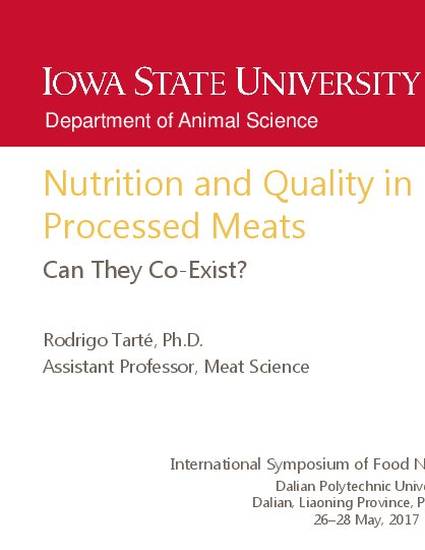
Presentation
Nutrition and Quality in Processed Meats: Can They Co-exist?
International Symposium on Food Nutrition and Health / Dalian Polytechnic University
(2017)
Abstract
Nutritional composition and organoleptic quality are two important determinants of consumer food choices. Organoleptic quality is determined primarily by the attributes of appearance, aroma, taste and texture, and is dictated by the raw materials and ingredients utilized and the interactions between them. While many of these ingredients perform essential technological functions, at the same time they may contain constituents that are considered to be detrimental to the nutritional quality of the products in which they’re used. Based on current dietary guidelines the main constituents of concern in processed meat products are sodium and saturated fat and, therefore, ingredients that supply these. For many years attempts by the food industry to reduce or eliminate the use of these ingredients without negatively affecting product organoleptic quality have encountered technological challenges that have led to varying degrees of success. This presentation will explain the key roles that ingredients and raw materials that contain sodium or saturated fat perform in processed meat systems, address the challenges associated with their replacement, and review recent technological advancements in this area.
Keywords
- sodium,
- fat,
- saturated fat,
- nutrition,
- processed meats
Disciplines
Publication Date
May 28, 2017
Location
Dalian, Liaoning Province, China
Citation Information
Rodrigo Tarté. "Nutrition and Quality in Processed Meats: Can They Co-exist?" International Symposium on Food Nutrition and Health / Dalian Polytechnic University (2017) Available at: http://works.bepress.com/rodrigo_tarte/25/
Creative Commons License

This work is licensed under a Creative Commons CC_BY-ND International License.
